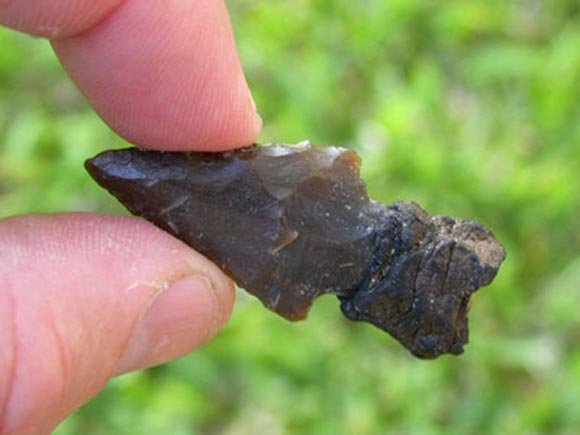Shilajit is a natural substance found mainly in the Himalayas, formed for centuries by the gradual decomposition of certain plants by the action of microorganisms. It is a potent and very safe dietary supplement, restoring the energetic balance and potentially able to prevent several diseases. Recent investigations point to an interesting medical application toward the control of cognitive disorders associated with aging, and cognitive stimulation. Thus, fulvic acid, the main active principle, blocks tau self-aggregation, opening an avenue toward the study of Alzheimer’s therapy. In essence, this is a nutraceutical product of demonstrated benefits for human health. Considering the expected impact of shilajit usage in the medical field, especially in the neurological sciences, more investigations at the basic biological level as well as clinical trials are necessary, in order to understand how organic molecules of shilajit and particularly fulvic acid, one of the active principles, and oligoelements act at both the molecular and cellular levels and in the whole organism.
Composition of Shilajit
Shilajit tends to contain
- Fulvic Acid, seen as the main bioactive component
- Di-benzo-alpha-pyrones (DBPs) and the chromoproteins associated with DBPs; several other compounds such as 3,8-dihydroxy-dibenzo-α-pyrone that belong to the Dibenzo-α-pyrone class of molecules
- 4′-methoxy-6-carbomethoxybiphenyl
- 24(Z)-3/3-hydroxytirucalla-7,24-dien-26-oic acid, a triterpenoic molecule
- Glycine, Aspartic Acid, and Glutamic Acid in minor quantities
Long used in ayurvedic medicine, shilajit is touted as a natural remedy for the following health problems:
Uses & Health Benefits of Shilajit
- Chronic Fatigue Syndrome (CFS) – Chronic fatigue syndrome is a condition characterized by extreme fatigue that cannot be explained by an underlying medical condition. According to a preliminary study published in the Journal of Ethnopharmacology in 2012, shilajit may aid in the treatment of chronic fatigue syndrome. After giving laboratory rats shilajit for 21 days, scientists found that treatment with shilajit may influence several processes involved in the body’s production of energy. In addition, treatment appeared to alleviate anxiety and protect against oxidative stress.
- Alzheimer’s Disease – Shilajit shows promise in the treatment of Alzheimer’s disease, a progressive type of dementia that causes problems with memory, thinking, and behavior. According to a report published in the International Journal of Alzheimer’s Disease in 2012, the fulvic acid found in shilajit may help block the buildup of tau (a type of protein that forms neurofibrillary tangles, which are a key marker of Alzheimer’s disease and other neurodegenerative diseases).
- Chronic fatigue syndrome – Chronic fatigue syndrome (CFS) is a long-term condition that causes extreme tiredness or fatigue. CFS can make it difficult to go to work or school, and simple everyday activities can prove challenging. Researchers think that shilajit supplements may reduce symptoms of CFS and restore energy. CFS has been associated with mitochondrial dysfunction. This occurs when your cells don’t produce enough energy. In a study from 2012, researchers gave lab rats shilajit for 21 days and then induced CFS by forcing the rats to swim 15 minutes for 21 consecutive days. The results found that shilajit helped reduce the effects of CFS. They think this was the result of the shilajit helping to prevent mitochondrial dysfunction.
- Infertility – Shilajit is also a safe supplement for male infertility. In one study, a group of 60 infertile men took shilajit twice a day for 90 days after meals. At the end of the 90-day period, more than 60 percent of the study participants showed an increase in total sperm count. More than 12 percent had an increase in sperm motility. Sperm motility refers to the ability of the sperm in a sample to move adequately, an important part of fertility.
- Heart health – Shilajit as a dietary supplement may also improve heart health. Researchers tested the cardiac performance of shilajit on lab rats. After receiving a pretreatment of shilajit, some rats were injected with isoproterenol to induce heart injury. The study found that rats given shilajit prior to cardiac injury had fewer cardiac lesions.
- Strengthens and repairs the skeletal and muscular system – Shilajit has been traditionally used for hundreds of years in Asian herbal medicine both inwardly and outwardly against injuries, bone fractures, dislocations, diseases of the skin, and diseases of the peripheral nervous system, and also as a soothing and anti-inflammatory agent. There is initial evidence that it supports in the regeneration of bones, protecting from and slowing the process of osteoporosis. (18)
- Anemia
- Chronic fatigue syndrome
- Chronic pain
- Diabetes
- Digestive disorders
- Eczema
- High cholesterol
- Osteoarthritis
- Ulcerative colitis
Dosage of Shilajit
- Add 1/8 to 1/4 teaspoon to water, tea, nut milk, or your favorite smoothie.
- To find your optimal dosage, begin by taking a piece about the size of a grain of rice (~100 mg) once per day. In a few days, take the same amount 2-3 times per day.
- Then gradually increase the amount of shilajit taken with each dose up to a large pea size (~300 mg) until you achieve the desired benefits. Do not be greatly concerned with getting the portions exactly right or exactly the same each time you take it. Use the same shape (elliptical like rice or round like a pea) each time to ensure that you have relatively consistent amounts.
References

About the author